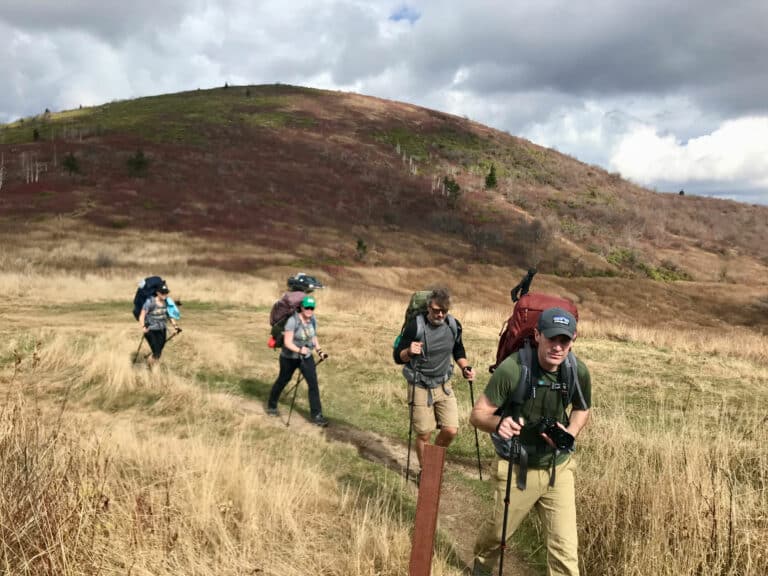Bob Dylan was right when, in his younger years, he said, “You don’t need a weatherman to know which way the wind blows.” Of course, he was talking about politics, but, still, there is no need to carry a radio on a hike just to listen to a weather report. Pay attention to what is going on around you and the natural world will provide all the information you need.
In winter, look at rhododendron leaves to determine the temperature. In order to protect their soft undersides from the desiccating effects of cool breezes, the leaves begin to droop and curl under. The tighter the curl, the colder it is. When the leaves are wrapped around themselves to about the size of a choice cigar, the temperature is hovering around freezing; the diameter of a cheap cigar means that it is getting into the twenties and the teens. If you are out when the leaves have become no larger than a cigarette, you better be wearing lots of layers—the temperature is mighty close to zero.
An insect that inhabits much of the Blue Ridge will let you know the temperature during late summer and early fall. In 1897, a professor at Tufts University, A.E. Dolbear, discovered that in response to rising temperatures that speed up the snowy tree cricket’s metabolism, the male crickets chirp at a faster rate. Count the number of chirps in 15 seconds and add 39 and you will be within a degree or two of the temperature. How do you know you are counting the chirps of the correct specie of cricket? Well, think about all of the movies you have ever watched that have crickets chirping in the background. Hollywood almost always uses the snowy tree cricket. Also, the male does not start chirping until late evening, and may continue throughout the night.
Look to the sky and jet contrails to determine the hike worthiness of the next couple of days. Short streaks of white indicate that the air is relatively dry and the ice crystals are quickly sublimating into vapor. Long contrails only form in moist air, meaning that precipitation might arrive in a day or two.
Bob was right. You don’t need a weatherman.







